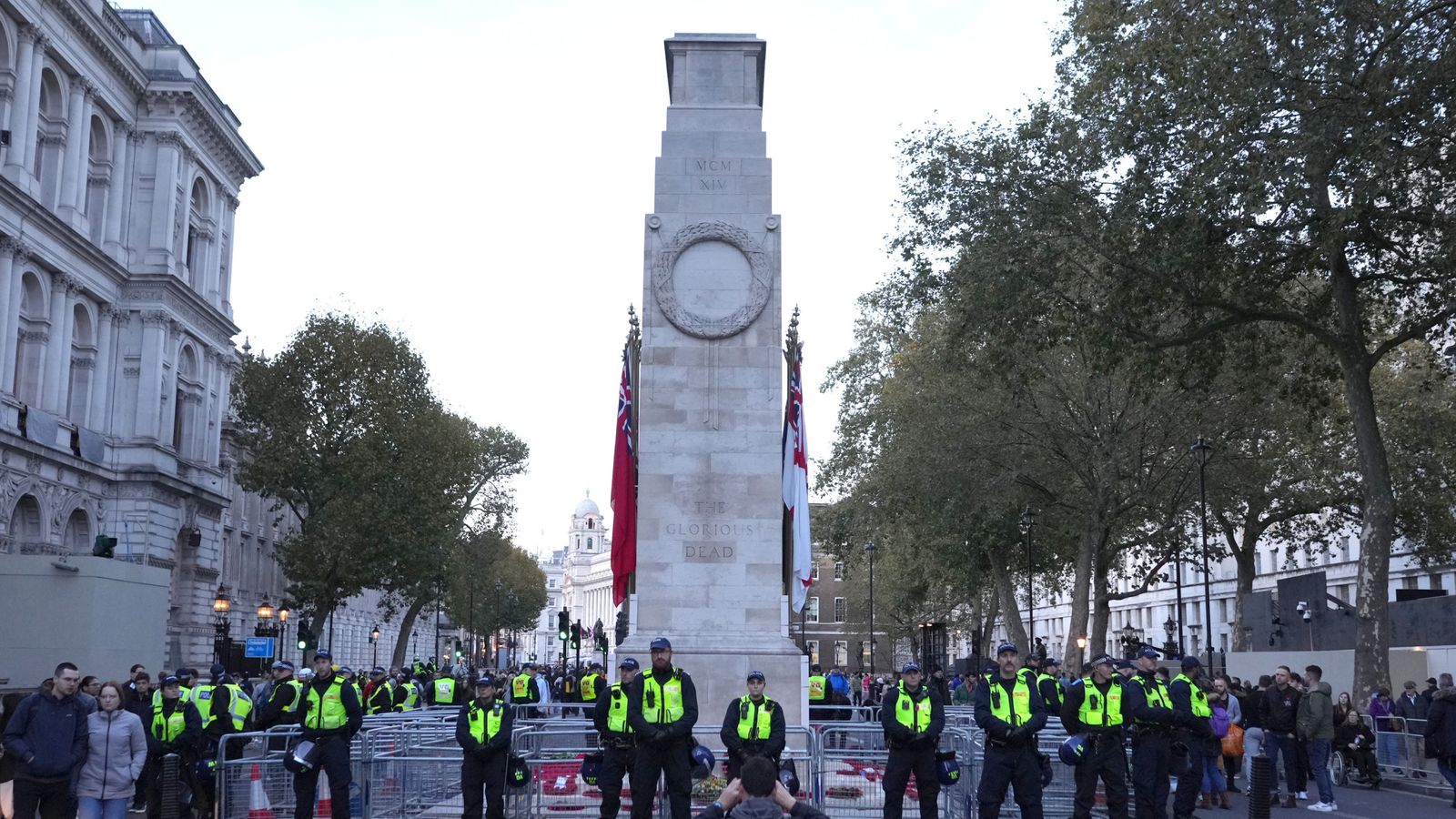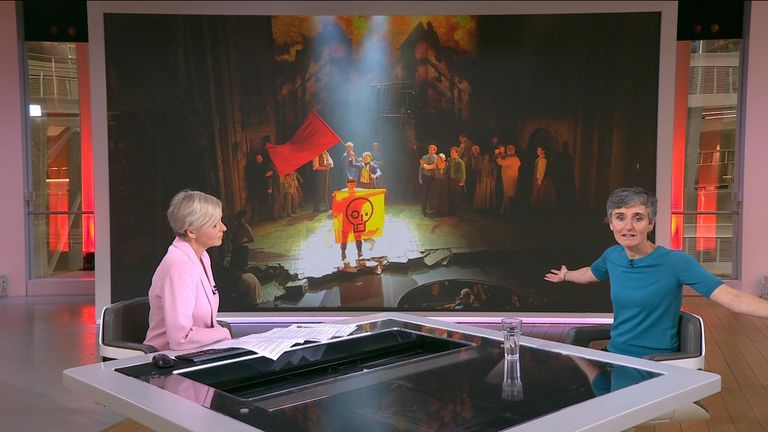Protesters who climb over war memorials or try to hide their identity could face jail under a new crackdown on “disruptive disorder”.
Police in England and Wales will be given powers to arrest protesters who cover their face in a bid to avoid prosecution, while people who scale national monuments could face a three-month prison sentence and a £1,000 fine, as part of the proposals.
The measures – which will be added to the Criminal Justice Bill currently being considered by parliament – will also make it illegal to carry flares and other pyrotechnics during demonstrations.
The Home Office said the right to protest is “no longer an excuse for certain public order offences” as it announced the plans.
But critics called it an attack on the “fundamental” right to protest and “authoritarian”.
Carla Denyer, co-leader of the Green Party, said: “This is another worrying step towards an authoritarian state, which too many in the government seem intent on creating.
“This government is reaching the stage where it views any disagreement with its plans as practically an offence in itself.”
The move comes as police chiefs warned some protesters were “using face coverings to conceal their identities, not only to intimidate the law-abiding majority, but also avoid criminal convictions”.
Officers already have the power to ask people to remove face coverings at designated protests – where forces believe crimes are likely to occur.
But the new offence will allow police to arrest protesters who disregard their orders, with those who flout the rules facing a month behind bars and a £1,000 fine.
Under the reforms, possession of flares, fireworks and any other pyrotechnics at public processions and assemblies for protest will be made illegal, with perpetrators also facing a £1,000 fine.
The Home Office said these had recently posed “significant risk of injury” and had been fired at police officers.
Protesters will also no longer be able to cite the right to protest as a reasonable excuse to get away with “disruptive” offences, such as blocking roads, the department added.
Home Secretary James Cleverly said: “Recent protests have seen a small minority dedicated to causing damage and intimidating the law-abiding majority.
Read More:
How have protest laws changed?
“The right to protest is paramount in our country, but taking flares to marches to cause damage and disruption is not protest, it is dangerous.
“That is why we are giving police the powers to prevent any of this criminality on our streets.”
The plans were welcomed by Essex Police chief constable BJ Harrington, who leads the National Police Chiefs’ Council’s work on public order.
‘Police not anti-protest’
He said the measures will make sure officers “have the powers that we need to get balance right between the rights of those who wish to protest, and those impacted by them”.
He added that while the use of flares and pyrotechnics at protests is “rare”, they are still “extremely dangerous”.
And he stressed that the new powers would only be used “when appropriate, proportionate, and necessary to achieve policing objectives”, insisting police were not “anti-protest.”
“There is a difference between protest and criminal activism, and we are committed to responding quickly and effectively to activists who deliberately disrupt people’s lives with reckless and criminal acts,” he said.
However Akiko Hart, director of human rights group Liberty, said: “These new proposed anti-protest measures are a massive overreach by the government and a threat to everybody’s right to protest.
Click to subscribe to the Sky News Daily wherever you get your podcasts
“This is an outrageous attempt to clamp down on our fundamental right to stand up for what we believe in.”
Liberty is embroiled in a legal battle with the government over previously introduced “anti-protest powers”, with a High Court trial due to take place later this month, the group said.
Last May, new offences were created under the Public Order Act to tackle disruptive tactics typically used by protest groups like Extinction Rebellion – such as “locking on”, tunnelling and obstructing major transport works.
Meanwhile the Police, Crime, Sentencing and Courts Act passed in 2022 made it illegal to “create a risk of or cause serious harm to the public” or “obstruct the public”.


